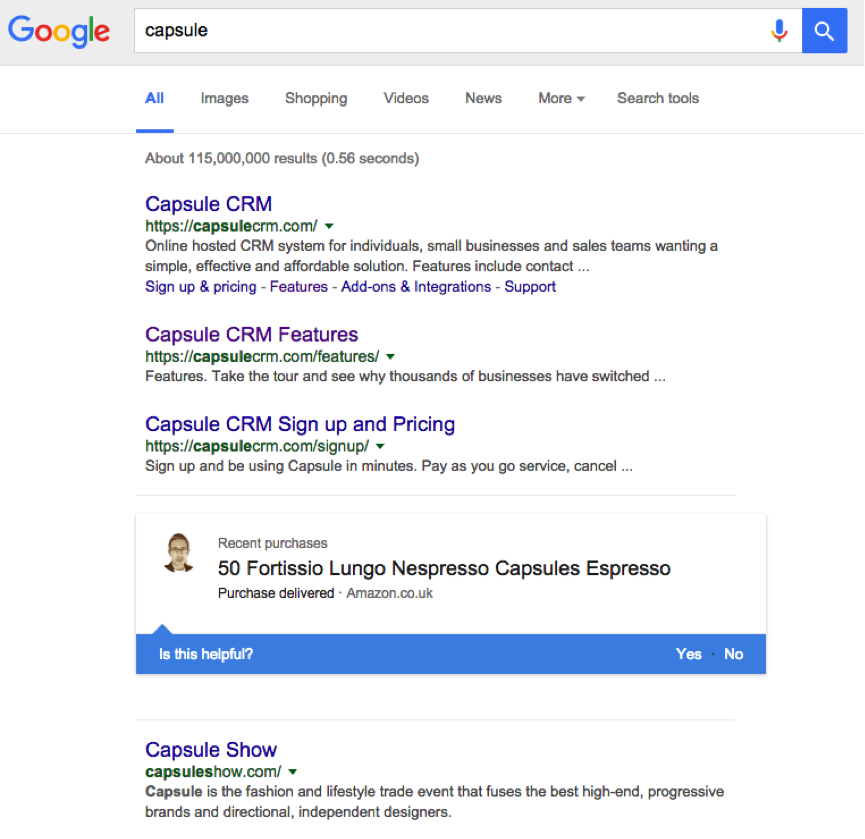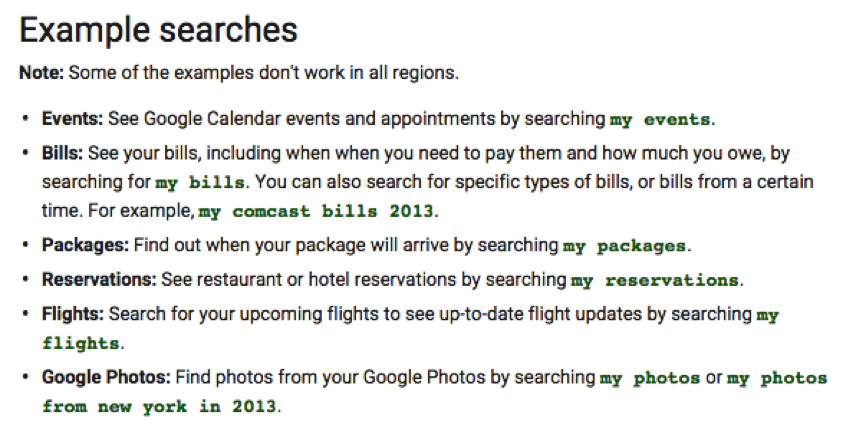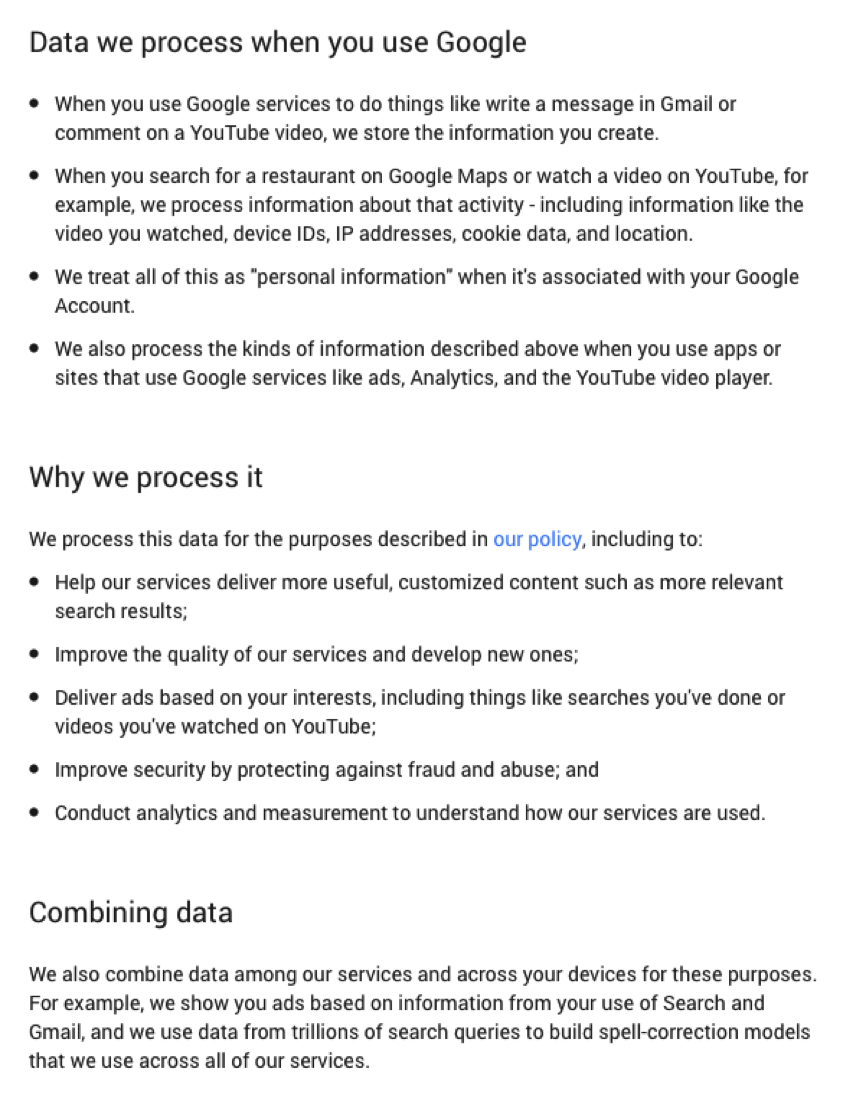Earlier today, while signed in to Gmail, I stumbled upon what appears to be a new test from Google. Some say it’s a little bit creepy. I think it’s the natural evolution of Google Now.
I typed in ‘capsule’ to take a look at the CRM tool, and Google served up the following personalised content unit:

As you can see, I’ve been buying coffee capsules recently.
Before this content was shown to me it displayed a message along the lines of “only you will see this result”.
The data is presumably pulled in via Gmail (most likely) or possibly even Chrome (though Matt Cutts once said Chrome data was never used in the organic algorithm).
Ok, let’s try another recent purchase…

Well, there it is. A slightly different format this time, but I am indeed guilty of buying multicoloured Post-It Notes.
I clicked the ‘Learn More’ link, to find out what was going on, and was taken to a page called ‘Search results from your Google products’.
Google explains:
“You can search for information from other Google products you use, like Gmail, Google Calendar, and Google+. For example, you can search for information about your upcoming flights, restaurant reservations, or appointments.”
Here are some other example searches that it suggests:

Intriguing. I typed in ‘my packages’ (‘my purchases’ also works) and sure enough, it revealed what I had been buying recently. It even included a takeaway curry! Expand the result and it will give you the detail, and provide a link to the email receipt…

A little research shows that the ‘my purchases’ operator has been in play for a year or so, but this is certainly the first time I’ve stumbled upon this feature based on a product keyword.
Google did a good job of finding the things I’d bought from Amazon, based on the keywords in the product name, but not so well from eBay and other vendors. Might be telling.
Or it could just be a slow rollout and I’m the last to get it…
Getting up close and personal
Google is turning the search interface into a personal ‘tell me about my X’ tool. Makes you think about its “organising the world’s information” mission statement. Now it’s specifically organising your own personal information.
It’s quite a thing to get your head around. I did a full-on double take when I first saw my purchase history in the search results.
I wonder how many millions of birthday presents are going to be prematurely revealed?
You have the ability to opt out, by changing your search settings (click ‘Do Not Use’ under the ‘Private Results’ heading), and it should only work if you’re logged in.
Google Now
This clearly seems to be an extension of Google Now, which is billed as an “intelligent personal assistant” and has one of the most ironic websites ever (it should be called Google Eventually).
I know that Google Now works with the Chrome browser but it’s the first time I’ve personally seen anything like this integrated into the search results interface.
As such, I checked to see if it works in Safari, and sure enough, it does.
When signing in to Google via Safari I was presented with some updated T&Cs, which covers how it uses data…

All very interesting. Especially that last sentence about combining data. It’s pretty much why I think Google (sorry, ‘Alphabet’) should buy Twitter, as it makes a lot of sense from a data perspective.
What do you think? Creepy or useful? Fancy a cup of coffee?




